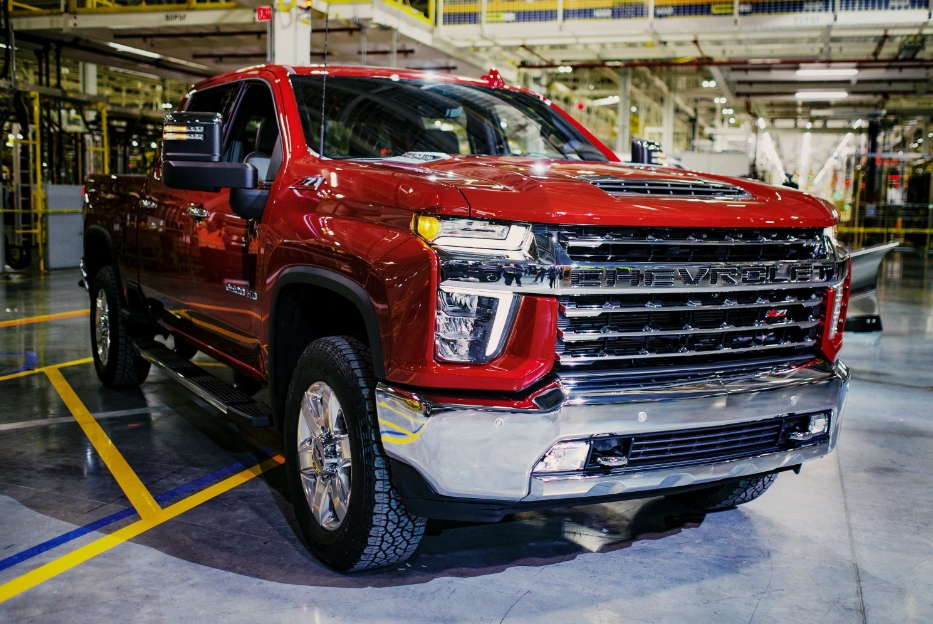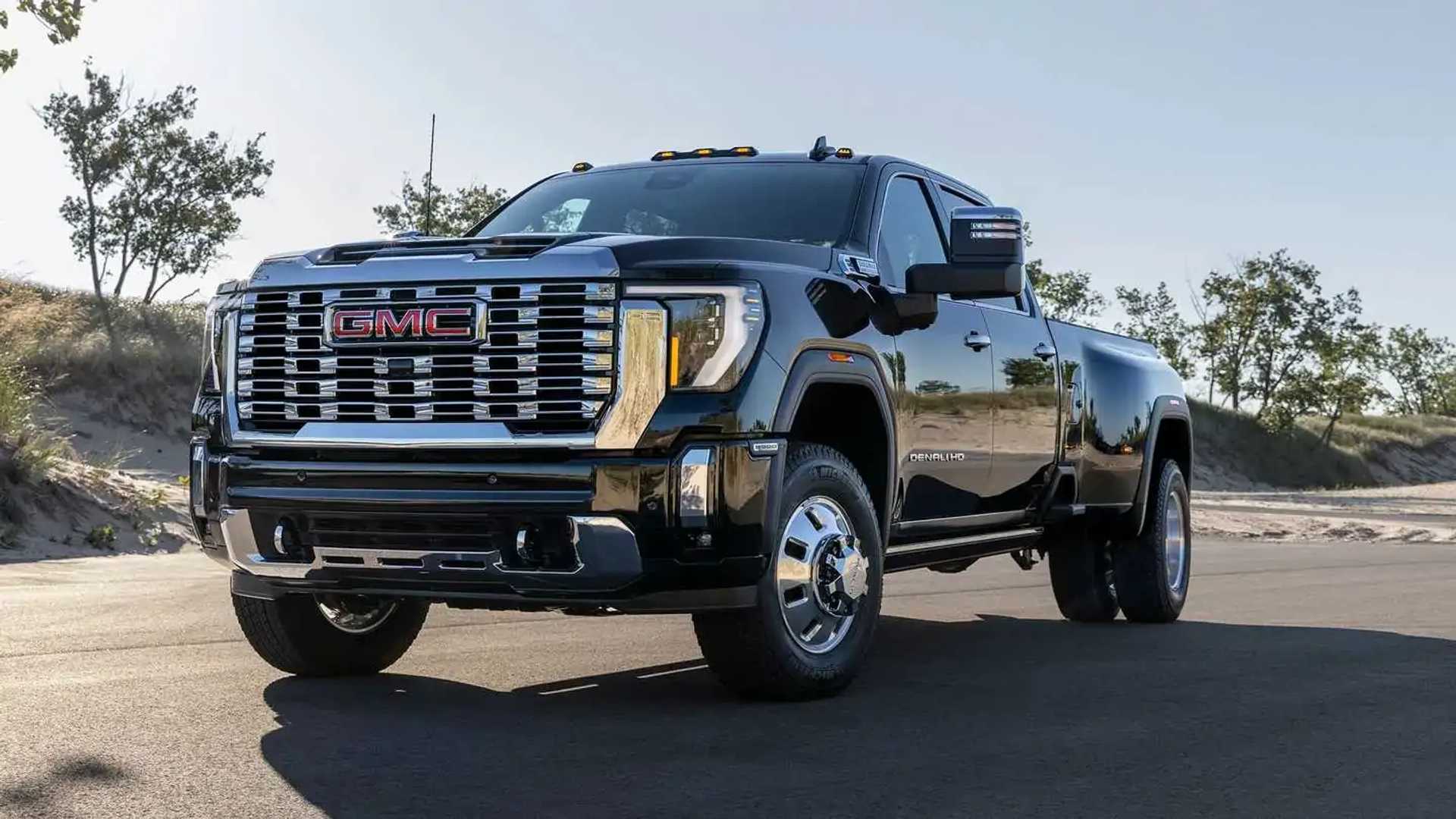2500 and 3500 Diesel Trucks for Sale: Your Ultimate Guide to Heavy-Duty Powerhouses

2500 and 3500 Diesel Trucks for Sale: Your Ultimate Guide to Heavy-Duty Powerhouses
For those who demand unparalleled strength, relentless torque, and unwavering reliability from their vehicles, the 2500 and 3500 series diesel trucks stand as the undisputed champions. These aren’t just vehicles; they are workhorses, mobile command centers, and the backbone of countless businesses and adventurous lifestyles. Whether you’re a seasoned contractor hauling heavy equipment, an RV enthusiast embarking on cross-country journeys, a farmer managing livestock and machinery, or simply someone who appreciates the sheer capability, understanding the nuances of these heavy-duty diesel trucks is paramount before making an investment. This comprehensive guide will navigate you through everything you need to know about 2500 and 3500 diesel trucks for sale, empowering you to make an informed decision.
Understanding the Heavy-Duty Classifications: 2500 vs. 3500
At the core of these formidable machines lies a classification system that dictates their payload and towing capabilities. The "2500" series typically refers to a ¾-ton truck, while the "3500" series designates a 1-ton truck. These designations, though historical in origin (referring to the approximate payload capacity in tons), now broadly indicate a truck’s Gross Vehicle Weight Rating (GVWR) and Gross Combined Weight Rating (GCWR).
- 2500 Series (¾-Ton): These trucks offer a significant step up from half-ton pickups, providing enhanced towing and payload capacities suitable for larger travel trailers, fifth-wheel campers, heavier work trailers, and substantial loads in the bed. They strike a balance between daily drivability and serious capability. Common models include the Ford F-250 Super Duty, Ram 2500, and Chevrolet Silverado 2500HD/GMC Sierra 2500HD.
- 3500 Series (1-Ton): Representing the pinnacle of consumer-grade truck capability, 3500 series trucks are designed for the heaviest tasks. They boast the highest payload and towing capacities, often featuring options like dual rear wheels (dually) for increased stability and load distribution. These are the go-to choice for massive fifth-wheel RVs, multi-car trailers, heavy equipment transport, and serious commercial applications. Examples include the Ford F-350 Super Duty, Ram 3500, and Chevrolet Silverado 3500HD/GMC Sierra 3500HD.
The choice between a 2500 and a 3500 ultimately hinges on your specific needs, particularly the maximum weight you anticipate towing or hauling.
Why Choose a Diesel Engine? The Power Behind the Punch
While both 2500 and 3500 series trucks are available with gasoline engines, the diesel option is where these vehicles truly shine, especially for heavy-duty applications. Diesel engines offer distinct advantages that make them ideal for towing and hauling:
- Superior Torque: Diesel engines produce significantly more low-end torque compared to their gasoline counterparts. This immense twisting power is crucial for getting heavy loads moving from a standstill and maintaining speed on inclines without straining the engine.
- Exceptional Durability and Longevity: Built with heavier-duty components to withstand higher compression ratios and operating pressures, diesel engines are renowned for their robustness and extended lifespan. Many diesel trucks routinely exceed 300,000 miles with proper maintenance.
- Enhanced Fuel Efficiency Under Load: While diesel fuel itself can be more expensive per gallon, diesel engines generally offer better fuel economy, especially when towing or hauling heavy loads. They are more efficient at converting fuel into power, leading to fewer stops at the pump on long hauls.
- Engine Braking: Most modern diesel trucks feature an integrated exhaust brake or a true engine brake, which uses engine compression to slow the vehicle. This feature is invaluable for controlling speed on steep descents, reducing wear on service brakes and increasing safety.
- Consistent Power at Altitude: Unlike naturally aspirated gasoline engines that lose power at higher altitudes due to thinner air, turbocharged diesel engines maintain their power output more effectively.
The leading diesel engines in this segment include Ford’s Power Stroke (6.7L), Ram’s Cummins (6.7L), and GM’s Duramax (6.6L), each with its loyal following and distinct characteristics.
Key Considerations When Buying a 2500 or 3500 Diesel Truck
Purchasing a heavy-duty diesel truck is a significant investment. Careful consideration of several factors will ensure you select the right vehicle for your needs:
-
Intended Use and Capacity Requirements: This is the most critical factor. What will you be doing with the truck?
- Towing: Determine the maximum weight you’ll tow (trailer + cargo) and the type of trailer (conventional, fifth-wheel, gooseneck). Ensure the truck’s Gross Combined Weight Rating (GCWR) and Gross Trailer Weight (GTW) capacity exceed your needs with a comfortable buffer.
- Payload: Consider the weight of passengers, cargo in the bed, and any accessories (like a fifth-wheel hitch). Ensure the truck’s Gross Vehicle Weight Rating (GVWR) and payload capacity can handle it.
- Daily Driving: How often will it be your primary vehicle? A 3500 dually can be cumbersome in urban environments.
-
Cab Configuration and Bed Length:
- Cab: Regular Cab (2 doors, 2-3 seats), Extended Cab (2-4 doors, smaller rear seating, e.g., Ford SuperCab, Ram Quad Cab, GM Double Cab), Crew Cab (4 full-size doors, spacious rear seating).
- Bed: Short Bed (approx. 6.5 ft) or Long Bed (approx. 8 ft). Long beds are often necessary for fifth-wheel towing to prevent cab-to-trailer contact during turns.
-
Single Rear Wheel (SRW) vs. Dual Rear Wheel (DRW/Dually):
- Most 2500s are SRW. Most 3500s offer both SRW and DRW options.
- DRW: Offers significantly higher payload and towing stability, especially for wide, heavy trailers like large fifth-wheels or commercial goosenecks. Provides a safety net in case of a rear tire blowout. Downside: wider stance, less maneuverable, higher tire replacement costs.
-
Drivetrain: 2WD vs. 4WD:
- 2WD (Two-Wheel Drive): Lighter, slightly better fuel economy, lower purchase price. Suitable if you primarily drive on paved roads and in fair weather.
- 4WD (Four-Wheel Drive): Essential for off-road conditions, unpaved job sites, snow, or launching boats on slippery ramps. Adds weight, complexity, and cost.
-
Trim Levels and Features: Heavy-duty trucks range from basic work trucks to luxurious cruisers with heated/cooled seats, advanced infotainment, and driver-assist technologies. Balance your budget with desired comfort and convenience features.
-
Maintenance and Running Costs:
- Fuel: Diesel fuel is often more expensive than gasoline and varies seasonally.
- DEF (Diesel Exhaust Fluid): Modern diesels require DEF to reduce emissions. It needs to be refilled periodically.
- Maintenance: Diesel engine parts and specialized labor can be more expensive than gasoline counterparts. However, service intervals are often longer.
- Emissions Systems: Diesel Particulate Filters (DPF), Exhaust Gas Recirculation (EGR), and Selective Catalytic Reduction (SCR) systems are complex. Proper maintenance and occasional "regeneration" cycles are crucial to prevent costly issues. Be wary of "deleted" trucks (emissions systems removed) as they are illegal for road use and can cause long-term engine problems.
The Buying Process: New vs. Used Diesel Trucks
Both new and used markets offer compelling options for 2500 and 3500 diesel trucks.
-
Buying New:
- Pros: Full factory warranty, latest technology and safety features, customizable options, no previous owner’s issues.
- Cons: Significant initial depreciation, higher purchase price, potentially long wait times for custom orders.
-
Buying Used:
- Pros: Significantly lower price, much of the depreciation has already occurred, wider selection of past models/features, potentially more available on lots.
- Cons: No factory warranty (or limited remaining), unknown history, potential for hidden mechanical issues, wear and tear.
Tips for Buying a Used Diesel Truck:
- Get a Pre-Purchase Inspection (PPI): This is non-negotiable. Have an independent, reputable diesel mechanic thoroughly inspect the truck, especially the engine, transmission, turbo, emissions system, and frame.
- Review Service Records: A well-maintained truck will have detailed service history. Look for consistent oil changes, fuel filter replacements, and DEF system maintenance.
- Check for Modifications: Be wary of trucks with aftermarket "tunes" or "deletes" (removal of emissions components). While some owners claim performance benefits, these modifications can void warranties, cause premature engine wear, and make the truck illegal for road use.
- Inspect for Rust: Pay close attention to the frame, brake lines, fuel lines, and body panels, especially in regions that use road salt.
- Test Drive Thoroughly: Drive the truck under various conditions. Listen for unusual noises, feel for vibrations, and test all functions (4WD, AC, infotainment). If possible, test drive it with a heavy load.
- Check Fluid Levels and Condition: Look for clean fluids and no leaks.
- Run a Vehicle History Report: Services like Carfax or AutoCheck can reveal accident history, salvage titles, odometer discrepancies, and previous ownership details.
Maintenance Tips for Your Diesel Workhorse
Proper maintenance is key to the longevity and reliability of your diesel truck.
- Regular Oil Changes: Use diesel-specific engine oil at the manufacturer’s recommended intervals. Diesel engines produce more soot, requiring oil designed to handle it.
- Fuel Filter Replacement: Diesel fuel filters are crucial for removing contaminants and water. Replace them regularly as per the owner’s manual to protect the sensitive fuel system.
- DEF System Maintenance: Ensure the DEF tank is kept topped up with quality fluid. Avoid letting it run dry, as it can de-rate engine power.
- Coolant System: Maintain the correct coolant type and perform flushes as recommended to prevent corrosion and maintain optimal engine temperature.
- Transmission Fluid: Follow the manufacturer’s schedule for transmission fluid and filter changes, especially if you frequently tow heavy loads.
- Air Filter: A clean air filter is vital for engine performance and efficiency.
- Monitor Dashboard Lights: Pay attention to check engine lights, DPF warnings, or DEF level indicators. Address them promptly to prevent minor issues from escalating.
Price Table: New & Used 2500/3500 Diesel Trucks (Approximate Ranges)
This table provides general price ranges and specifications. Actual prices will vary significantly based on trim level, options, mileage, condition, geographic location, and market demand.
| Feature / Model | Ford F-250/F-350 Super Duty | Ram 2500/3500 | Chevy Silverado/GMC Sierra 2500HD/3500HD |
|---|---|---|---|
| Truck Class | 2500 (¾-ton) / 3500 (1-ton) | 2500 (¾-ton) / 3500 (1-ton) | 2500HD (¾-ton) / 3500HD (1-ton) |
| Primary Diesel Engine | 6.7L Power Stroke V8 Turbo Diesel | 6.7L Cummins I6 Turbo Diesel | 6.6L Duramax V8 Turbo Diesel |
| Approx. HP Range | 475-500 hp | 370-420 hp | 445-470 hp |
| Approx. Torque Range | 1050-1200 lb-ft | 850-1075 lb-ft | 910-975 lb-ft |
| Max Conventional Towing (lbs) | 22,000 – 25,000+ | 20,000 – 23,000+ | 18,500 – 20,000+ |
| Max 5th Wheel/Gooseneck Towing (lbs) | 35,000 – 40,000+ | 35,000 – 37,000+ | 31,000 – 36,000+ |
| Max Payload (lbs) | 7,000 – 8,000+ | 6,000 – 7,600+ | 7,000 – 7,500+ |
| New Price Range (MSRP Start – Fully Loaded) | $50,000 – $100,000+ | $50,000 – $100,000+ | $50,000 – $95,000+ |
| Used Price Range (2015-2020 Models) | $30,000 – $70,000+ | $30,000 – $70,000+ | $30,000 – $65,000+ |
| Key Features (Common) | Pro Trailer Backup Assist, Onboard Scales, Integrated Trailer Brake Controller, Exhaust Brake, 10-speed Auto | Auto-Level Rear Air Suspension, RamBox, Exhaust Brake, Integrated Trailer Brake Controller, Aisin HD Auto | MultiPro/Multi-Flex Tailgate, Allison 10-speed Auto, Exhaust Brake, Integrated Trailer Brake Controller, Duramax Diesel |
| Common Transmissions | TorqShift 10-speed Auto | 6-speed Auto (370hp), Aisin 6-speed Auto (420hp) | Allison 10-speed Auto |
Note: Towing and payload capacities vary greatly by configuration (engine, cab, bed, 2WD/4WD, SRW/DRW, axle ratio).
Frequently Asked Questions (FAQ)
Q: What’s the primary difference between a 2500 and a 3500 diesel truck?
A: The main difference lies in their maximum payload and towing capacities. 3500 trucks generally have higher ratings, often due to heavier-duty suspension components and the availability of dual rear wheels (dually) for increased stability and load capacity.
Q: Are diesel trucks more expensive to maintain than gasoline trucks?
A: Generally, yes. While service intervals can be longer, diesel-specific parts (like injectors, turbos, and emissions components) and specialized labor can be more costly. Diesel fuel is also often priced higher. However, their longevity can offset some of these costs over the long term.
Q: Do I really need a diesel truck, or would a gasoline heavy-duty be sufficient?
A: You only truly "need" a diesel if you regularly tow or haul extremely heavy loads that push the limits of gasoline heavy-duty trucks, or if you plan to keep the truck for very high mileage. For occasional, lighter towing or daily driving without significant loads, a gasoline heavy-duty truck might be more cost-effective upfront and simpler to maintain.
Q: What is DEF (Diesel Exhaust Fluid), and do all modern diesels use it?
A: DEF is a liquid consumed by the Selective Catalytic Reduction (SCR) system in most modern diesel trucks (typically 2010 and newer). It’s sprayed into the exhaust stream to convert harmful nitrogen oxides (NOx) into harmless nitrogen and water vapor, reducing emissions. Yes, most new diesel trucks require DEF.
Q: What should I look for when buying a used diesel truck?
A: Always get a pre-purchase inspection by a qualified diesel mechanic. Check service records meticulously, inspect for rust (especially on the frame), confirm the emissions systems are intact (no "deletes"), and test drive the truck thoroughly under various conditions.
Q: Can a 3500 dually be used as a daily driver?
A: Yes, it can, but it comes with challenges. Its wider stance makes parking and navigating tight spaces difficult. Fuel economy will be lower than a smaller truck, and tire replacement costs are higher due to the extra two tires. For those who frequently need its massive capacity, the trade-offs are acceptable.
Conclusion
2500 and 3500 diesel trucks are more than just modes of transportation; they are indispensable tools for those who demand ultimate capability. Their robust diesel engines provide the torque, durability, and efficiency needed to conquer the toughest towing and hauling challenges. By carefully considering your specific needs, understanding the differences between the classifications, weighing the pros and cons of new versus used, and committing to proper maintenance, you can confidently invest in a heavy-duty diesel truck that will serve as a reliable partner for years to come. The right 2500 or 3500 diesel truck isn’t just a purchase; it’s an investment in unparalleled power and unwavering performance.

